
International Summit on
Higher Education and Workforce Development
in the 21st Century
30 November - 2 December 2022 | Islamabad
Objectives
- To bring together leaders and decision makers from universities, industry, and government to invigorate the higher education agenda and rethink the role of higher education in the 21st century.
- To hold conversations on addressing key challenges faced by the public sector universities today while keeping a futuristic approach.
- To serve as a springboard for forging a “community of practice” among higher education institutions and stakeholders, and to launch a subsequent policy dialogue series.
Expected Outcomes
- Partnership opportunities identified among universities in Pakistan as well as those in Pakistan and in the US.
- A summit communique summarizing the important policy recommendations emerged from different sessions to share with all relevant stakeholders.
- Launching of policy dialogue series following the recommendations emerged from the summit.
November 30
December 1
December 2
Session 3
Sub-Session 1
Sub-Session 2
Sub-Session 3
9:30 a.m.–1 p.m.
Session 4
2–5 p.m.
Session 5
9 a.m.–12:30 p.m.
Session 1
Aligning Higher Education to 21st Century Needs
-
Higher education globally is at a turning point. Universities will keep teaching for social and economic good, conduct research, and serve their communities. That core mission of universities will remain the same for the foreseeable future. However, what we refer to as the global megatrends - climate change, pandemics, technological advances and with that the changing nature of job markets, changing student populations - are forcing universities to reconsider how they deliver services so that they can keep true to their missions. With that in mind, this session is designed to address what we consider are the five key trends relevant to global as well as Pakistani higher education institutions and will define the next few decades of higher education delivery in Pakistan. These include - Sustainability and Interdisciplinarity; Innovation and Entrepreneurship; Micro-credentials and Skills Education; Online and Distance Education; and Ensuring Building Diverse Campuses.
Session Chair
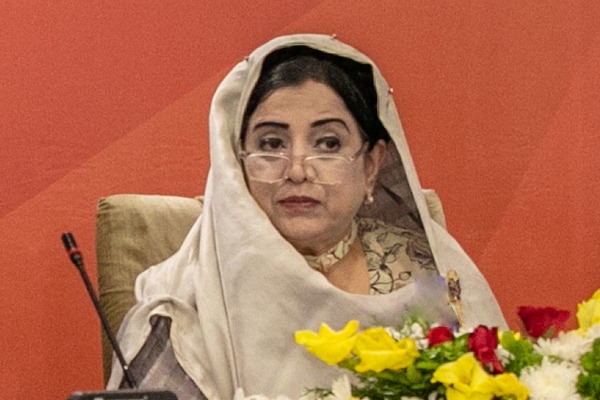

-
Higher education globally is at a turning point. Universities will keep teaching for social and economic good, conduct research, and serve their communities. That core mission of universities will remain the same for the foreseeable future. However, what we refer to as the global megatrends - climate change, pandemics, technological advances and with that the changing nature of job markets, changing student populations - are forcing universities to reconsider how they deliver services so that they can keep true to their missions. With that in mind, this session is designed to address what we consider are the five key trends relevant to global as well as Pakistani higher education institutions and will define the next few decades of higher education delivery in Pakistan. These include - Sustainability and Interdisciplinarity; Innovation and Entrepreneurship; Micro-credentials and Skills Education; Online and Distance Education; and Ensuring Building Diverse Campuses.
Speakers
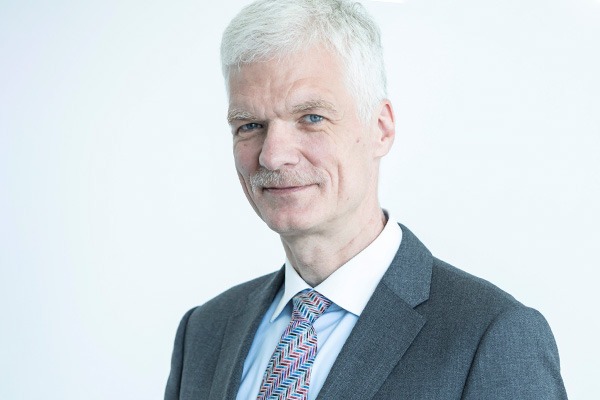

Skills and Micro-credentials: What do the Degrees Convey?
Tertiary qualifications have become the entrance ticket for modern societies. Never before have those with an advanced qualifications had the life chances they enjoy today, and never before have those who struggled with a good education paid the price for that which they pay today. And despite the rapid rise in graduates, we have seen no decline in their relative pay, which is so different from those with poor qualifications. At the same time, many university graduates face difficulties finding good jobs, while employers say they cannot find the people with the skills they need. How can we give people greater ownership over what they learn, how they learn, where they learn and when in their lives they learn? How can we advance from lumpy degrees that represent the completion of coursework to more granular ways of recognizing what people know and can do? How can we better integrate the world of work with the world of learning? Great places of work are always great places of learning, and great educational institutions are always anticipating the evolution of the demand for skills”.
Andreas Schleicher initiated and oversees the Programme for International Student Assessment (PISA) and other international instruments that have created a global platform for policymakers, researchers and educators across nations and cultures to innovate and transform educational policies and practices. He has worked for over 20 years with ministers and education leaders around the world to improve quality and equity in education. Former U.S. Secretary of Education Arne Duncan said that Schleicher “understands the global issues and challenges as well as or better than anyone I’ve met, and he tells me the truth” (The Atlantic, July 11). Former UK Secretary of State Michael Gove called Schleicher “the most important man in English education” – even though he is German and lives in France.
Before joining the OECD, he was Director for Analysis at the International Association for Educational Achievement (IEA). He studied Physics in Germany and received a degree in Mathematics and Statistics in Australia. He is the recipient of numerous honours and awards, including the “Theodor Heuss” prize, awarded in the name of the first president of the Federal Republic of Germany for “exemplary democratic engagement”. He holds an honorary Professorship at the University of Heidelberg.
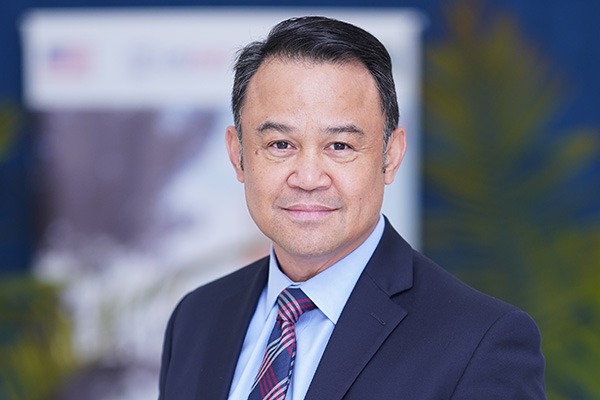

Advancing Equity, Diversity, and Inclusionin HEIs: Supporting Diverse Student Success
Colleges and universities enroll a growing number of students from diverse backgrounds. Although access to higher education is the first step in providing equality of opportunity to pursue a postsecondary education, entering higher education institutions (HEIs) does not mean that students will be successful in completing their degrees. Barriers to student success among diverse students include lackof sense of belonging, feelings of isolation, low faculty-student interactions, academic and social adjustment, and financial stress. Evidence suggest that promoting a campus culture that advances equity, diversity, and inclusion is directly related to student success. Cultural diversity enriches the education experience of all students, diversity on campus improves communication and thought-processing skills, campus diversity challenges stereotypes, and diversity prepares students for the workforce. Understanding the factors that facilitate or impede student persistence, retention, and graduation requires academic leaders to ask critical questions about organizational culture and climate. This presentation highlights Kezar’s (2019) framework of creating a diverse student success infrastructure as key strategies to catalyzing cultural change for today’s student.
Frankie is Associate dean for Faculty and Student Affairs and Professor of Education, Culture, and Society and Educational Leadership and Policy in the College of Education at the University of Utah. His research examines the role and impact of college on individuals and society. His research and publishedwork focus on postsecondary educational opportunities for first-generation, low-income and historically underrepresented students. His publications investigate the economic benefits of education, role of career and technical education, accountability, education access for diverse populations, and pathways to STEM (science, technology, engineering, and mathematics) degrees. He has received a managed a grant portfolio of over $3.5 million and has been associated with nearly $6 million in grants from the National Science Foundation. Prior to his appointment at UU, he was department head of educational leadership, policy, and technology studies and professor at The University of Alabama. He has held faculty positions at the University of Illinois at Urbana-Champaign, Iowa State University, and Florida Atlantic University. He earned his bachelor's degree in political science, M.A. Ph.D. degrees in higher education and organization change from the University of California at Los Angeles (UCLA).
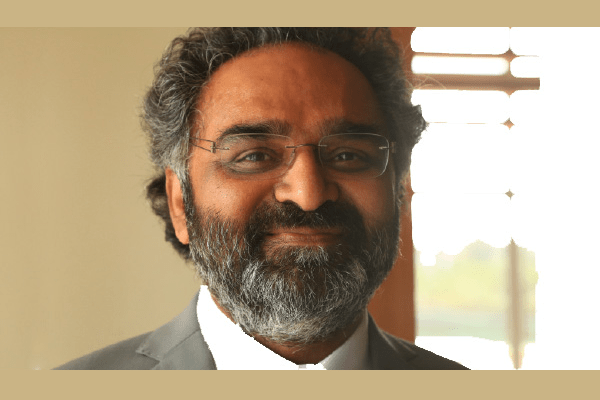

Avoiding Collapse, Transitioning to Sustainability: Transforming Higher Education with Inter-Disciplinary Convergent Sustainability Science
In this age of Anthropocene, unfettered exploitation of natural resources by human activity are steering our planet towards an ecological collapse of life. 70% of the biodiversity has already been lost. Global carbon budget is rapidly shrinking to constrain global warming below 1.5C goal enshrined in Paris Agreement. With 8 billion people on the planet, secure access to food, energy, water, housing and transportation is increasingly challenged. Continuing dependence on fossil fuel driven economic growth vision of development will only hasten the imminent collapse of life, with people and ecosystems in developing countries already starting to face massive food, energy and water security crises. The traditional, colonial model of higher education is equally responsible for developing Human Resources that become part of this neo-liberal economic growth agenda, which only perpetuates inequity and elite capture of resources. In the face of these crises, humanity has little time and agency left to reconfigure our vision of development that requires transformations in all sectors of human activity impacting environment. Recent advances in Sustainability Science, some examples of which will be highlighted, provide a viable path towards decolonizing higher education by broadening the visions of sustainable development and dismantling colonial, neoliberal models of higher education. Inculcation of inter-disciplinary, convergent Sustainability Science education across engineering, health, natural sciences, social sciences, and humanities may give rise to a new generation of Human Resources that catalyze planetary transition to sustainability and avoid the imminent collapse of life on this planet.
Asim Zia is a Professor and Director of Ph.D. program in Sustainable Development Policy, Economics and Governance (SDPEG) at the University of Vermont (UVM). He is also Director of UVM’s Institute for Environmental Diplomacy and Security (IEDS); and currently appointed as a Fulbright Global Scholar (2021-2023) to lead a project on “Securing Clean Water in Transboundary Indus, Jordan and Amazon Basins through Science and Environmental Diplomacy.” His research, teaching and outreach activities focus on advancing the sustainability and resilience of integrated socio-environmental systems. He has led NSF, USDA, NOAA and McArthur foundation funded Team Science projects aimed at developing computational models of Social Ecological Systems. Foresight generated from these computational models is used widely to design anticipatory policies, configure governance systems and implement adaptive management.
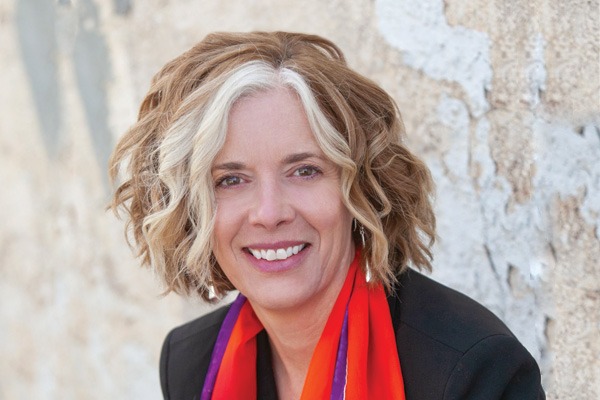

Developing a Service Infrastructure to Support a Range of Modalities and Credentials
Postsecondary institutions have long explored online learning opportunities. Many of us participated in text-based, threaded discussions in the 1990s, Second Life in the early part of the century, and MOOCs a mere decade after that. As tools and broadband became more reliable, institutions began to move degree programs fully online, often mimicking on-campus programs. And…the pandemic changed everything. Higher education institutions now understand the need to fully embrace a range of modalities—in-person, hybrid, and online—and credential types—including intentionally-designed stackable degrees and micro-credentials. The pandemic helped us see the broadband deserts found across the U.S., the competing demands on students’ lives, their need for flexible and affordable learning opportunities, their desire for evolved credential offerings that provide pathways to material success in the workforce. The University of Utah’s University Connected Learning (UCL) is a service unit that supports academic departments’ development and launch programs across an ecosystem of modalities and credentials, often in close collaboration with workforce partners. This service infrastructure allows the University to be prepared for a future that features flexible and integrated options (in terms of both content and delivery method) for learning across a lifetime, and across a largely rural state.
Deborah is a creative educator and thought leader with over two decades of experience in IT and higher education. As a senior administrator at the University of Utah, Keyek-Franssen works with a talented team to provide digital technologies for teaching and learning on-campus and off; a full range of online education opportunities and services to support those programs including learning experience design, market analysis, marketing, and adult learner support; and a rich set of professional education, workforce alignment, and personal enrichment programs. She began her career at the University of Colorado, where she served as director of academic technology; oversaw strategy and research in the use, implementation, and evaluation of educational technologies; and managed a team of consultants and technologists.
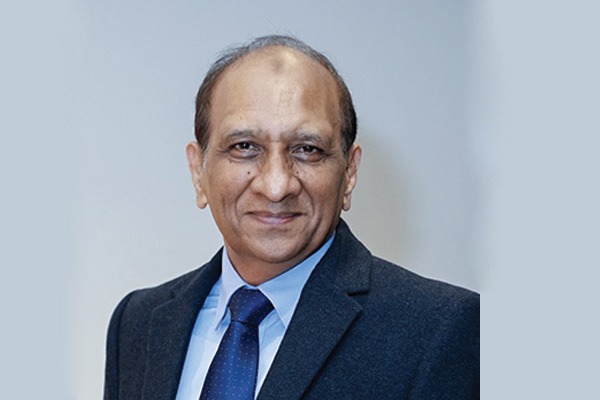

Innovation and Entrepreneurship – An opportunity for Higher Education Institutions
Imparting innovation and entrepreneurship were not considered as the primary role and responsibility of the higher education institutions in the pre-industrial revolutions. But as the higher education increasingly diversified from the pursuit of pure knowledge and literature to more applied, technology and business-oriented subjects, the need for exposing and training the faculty and students to be innovative and entrepreneurial has gained a significant importance. The start of fourth and fifth industrial revolution, mostly based on knowledge products, IT and deep tech, and the proliferation of startup ecosystem has tilted the balance towards individual entrepreneurs who have the knowledge, ability, skills and aptitude to create innovative solutions and convert them to beneficial, impactful and successful businesses. Many of the current success stories were born outside of the university environment, through some had their roots in the academic institutions. The higher education institutions have a great opportunity to inspire, educate, train and guide some of the young minds to be creative, innovative and entrepreneurial to become more impactful to society and economy, and to be job providers rather than job seekers. With the turn of the century, universities, government, and industry, globally have been working together to build upon this opportunity through various models and mechanisms comprising a combination of policies, incentives, infrastructure, capacity building and facilitations. This talk explores some of these knowledge creation-transfer-apply mechanisms, highlighting examples from the region.
Naveed is a structural engineer, academician, researcher, software developer, with over 40 years of active professional engagement. Currently, he is the vice president for knowledge transfer at the Asian Institute of Technology (AIT). He received his B.Eng. from University of Engineering and Technology, Lahore, Pakistan; M.Eng. and D.Eng. from Asian Institute of Technology, Bangkok, Thailand. He has been engaged as specialist by ADB, World Bank, UNESCAP, UNESCO and has been part of the team at California based Computer and Structures Inc. His research interests include finite element modeling and applications, advanced concrete design, performance-based design of tall buildings, design and evaluation of bridges, innovations in building technology, IOT, machine learning etc.
Session 2
Making HEIs Sustainable and Market Driven: Challenges and Opportunities
-
Most public sector universities in Pakistan rely only on government funds for recurrent as well as development activities. Tuition fee is highly subsidized and any increase in tuition is discouraged for political reasons and the fact that many who attend public universities can't afford to pay. With economic slowdown, universities in Pakistan are struggling with financial sustainability as higher education funding continues to be slashed. Universities need to learn resource mobilization to keep the lights on. This includes but is not limited to building academia industry linkages, public-private partnerships, endowments, private fund raising, innovation and commercialization, and development of other business and funding opportunities.
Employers also demand university education to be more relevant so that graduating students are skilled not just for their first jobs but also to re-learn and re-skill as nature of job markets changes. The session explores what universities are doing to stay relevant.
Session Chair
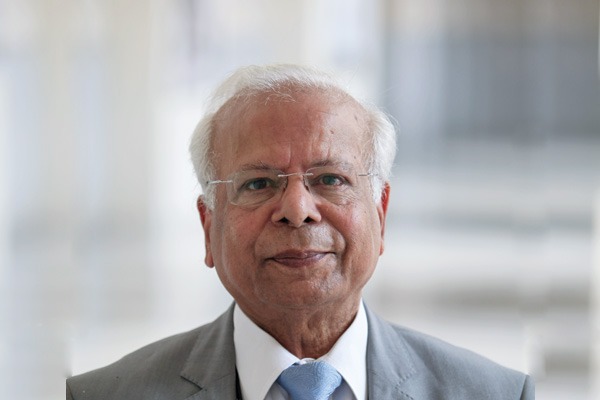

Public sector institutions are highly dependent upon government grants for their financial sustenance. There has been significant expansion in the number of the universities and student enrolment, but the total budgetary allocations have in fact dwindled, causing stress. The fee structure has not been revised because of political considerations but it is not realized that private returns to tertiary education are higher than the private returns. A sustainable model consists of the following elements (a) charging full
tuition fees from those who can afford to pay while provide financial assistance to all those who are needy (b) Use the land for Technology Parks, Industrial clusters, Joint ventures (c) Permit the faculty members to commercialize their patents and inventions and startups (d) Incentivize Consultancy services for Industry and other sectors (e) Offer Short term Executive Education and Professional Development courses (f) Make full use of national and international research grants (g) Establish Chairs in the name of prominent business families (f) Introduce disciplines for which the market demand is rising and charge higher fees. IBA case study prepared by Prof Ehsan ul Haq of LUMS illustrates the application of this model from a situation where the Institute was largely dependent upon external resources the bulk of finances now originate from internally generated resources. The buildings and facilities for expansion were financed solely by private sector contributions of $ 50 million but this enabled IBA to almost double the enrolment of students and introduce new disciplines and courses—a source of additional income.
Speakers


Presentation Title: Making Public Universities Sustainable - IBA, a case study
Public sector institutions are highly dependent upon government grants for their financial sustenance. There has been significant expansion in the number of the universities and student enrolment, but the total budgetary allocations have in fact dwindled, causing stress. The fee structure has not been revised because of political considerations but it is not realized that private returns to tertiary education are higher than the private returns. A sustainable model consists of the following elements (a) charging full tuition fees from those who can afford to pay while provide financial assistance to all those who are needy (b) Use the land for Technology Parks, Industrial clusters, Joint ventures (c) Permit the faculty members to commercialize their patents and inventions and startups (d) Incentivize Consultancy services for Industry and other sectors (e) Offer Short term Executive Education and Professional Development courses (f) Make full use of national and international research grants (g) Establish Chairs in the name of prominent business families (f) Introduce disciplines for which the market demand is rising and charge higher fees. IBA case study prepared by Prof Ehsan ul Haq of LUMS illustrates the application of this model from a situation where the Institute was largely dependent upon external resources the bulk of finances now originate from internally generated resources. The buildings and facilities for expansion were financed solely by private sector contributions of $ 50 million but this enabled IBA to almost double the enrolment of students and introduce new disciplines and courses—a source of additional income.
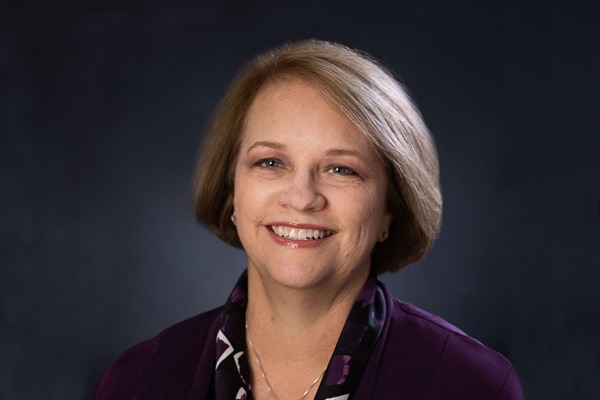

Private funding for public universities: The Why, the How, and the Where
Public higher education in many countries has faced cuts in government funding while struggling to keep tuition affordable for students. In several countries, these institutions have turned successfully to private fundraising to bridge the gap. Fundraising is an art and a science, requiring relationships with alumni, corporations, businesses, and private foundations, as well as trained personnel with the tools they need to succeed. There is a methodical process to fundraising, and when properly executed with staff who are driven and want to win, universities can be successful in raising private support. This support will help institutions thrive and be able to accomplish projects beyond what is possible with only government support.
Mary has over 30 years of experience in higher education, has led teams in the U.S and internationally in Poland, Armenia, Dubai and Pakistan. As the current vice president of Advancement at University of Central Arkansas (UCA), she is leading the $100 million UCA NOW capital campaign where her team has exceeded annual fundraising goals for a 5th consecutive year. She and her husband Bill have four children and two grandchildren.
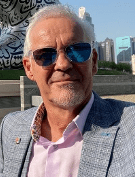

Sustainable Higher Education: Challenges and Opportunities
Financing a Russell Group university in the United Arab Emirates demands an agile, disruptive business model which carries additional risk. We will explore the foundations of funding a major university campus in the UAE and the challenges facing its long-term financial viability and the sources of funding that are available. We will also share some perspectives on minimising the skills gaps for graduates.
Roger has a degree in Industrial Design Engineering. He spent thirteen years in the design industry working for international companies including ITT and Mitsubishi. He moved into academia in Cardiff in 1998, teaching industrial design, entrepreneurship, social innovation and business management. In 2011, Roger and his family moved to Doha, Qatar to lead the Centre for Research, Design and Entrepreneurship at Virginia Commonwealth University. A strong believer in life-long learning, Roger completed an MBA in 2007 and published his doctoral thesis on female entrepreneurship in the Middle East in 2019. In his spare time, he cycles and has recently completed his PADI Rescue Diver certification and volunteers to restore the region’s coral reefs.
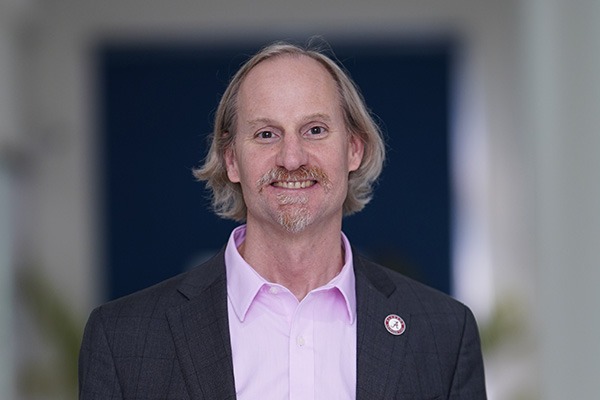

Responding to the Market
Evidence suggests higher education institutions (HEIs) support economic development. Experience indicates that market-driven developments at HEIs may be counterproductive and unsustainable. The dilemma facing universities is how to sustainably be an economic driver without losing educational and scholarly identity. This presentation explores this question and highlights the challenges and opportunities with making universities market driven. Review of examples provides insight into the value of carefully connecting with key local partners and identifying synergistic economic development opportunities. HEIs must ensure horizontal and vertical coordination connected to the prioritized economic development initiatives. Actions to increase revenue for HEIs must be balanced with actions to increase quality of outputs from the HEIs, e.g., students, research, policy guidance. The major caution for HEIs is to avoid blindly developing programs in response to market requests, especially when those programs deviate from the core academic mission, strengths, and identity of the institution.
Steve is a Professor in the Department of Civil, Construction and Environmental Engineering at the University of Alabama, and serves as the Director of Science at the Alabama Water Institute. He helps to catalyze multi-disciplinary water initiatives in research, education, global engagement, and community impact. His research group develops solutions to reduce risk from floods and other water-related hazards, improve performance of water systems from building to urban scales, and protect clean water. In teaching, he advances the use of project-based learning to build soft skills of students and to address critical local and global water problems. In 2019, recognizing his effort advancing faculty capacities and higher education systems in Pakistan, Dr. Burian was awarded the Sitara-i-Imtiaz by the President of Pakistan.
Session 3
Strengthening University-level Ecosystem
-
Different offices and staff (leadership, faculty, and students support services) at a university complement each other towards driving an organizational change leading to improved employability of graduates. In this regard, three parallel sub-sessions have been set up to discuss several interconnected issues.
Sub-Session 1: Strengthening HEIs Governance
Session Chair
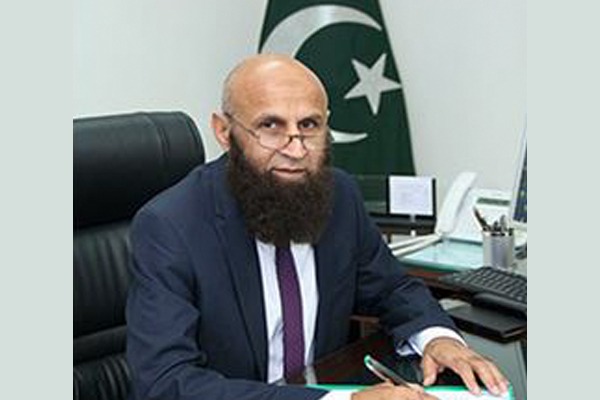

Speakers


HEI Governance – a Case Study
In this session we will look at examples of UK universities and their governance structures – commonalities and disruptors. We will look at the role that industry plays in academia and explore the governance structures of campus universities in the Middle East and the conflict between the academic and business as usual mindsets. The Middle East presents some unique challenges to operating ‘business as usual strategies’ and we will learn more about the university stakeholder ecosystem and roadmap for success.
Roger has a degree in Industrial Design Engineering. He spent thirteen years in the design industry working for international companies including ITT and Mitsubishi. He moved into academia in Cardiff in 1998, teaching industrial design, entrepreneurship, social innovation and business management. In 2011, Roger and his family moved to Doha, Qatar to lead the Centre for Research, Design and Entrepreneurship at Virginia Commonwealth University. A strong believer in life-long learning, Roger completed an MBA in 2007 and published his doctoral thesis on female entrepreneurship in the Middle East in 2019. In his spare time, he cycles and has recently completed his PADI Rescue Diver certification and volunteers to restore the region’s coral reefs.
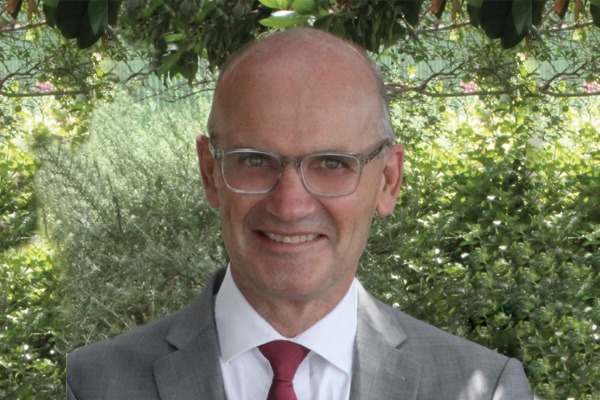

Growing Universities through Research and Innovation
The role of research and innovation at universities has led to increased reputation at institutions, improved student engagement inside and outside the classroom, and helped universities recruit top faculty. This presentation will provide both an academic and administrative perspective based on 20 years of experience in research and innovation. Reputational changes will be demonstrated through the enhancement of external funding that drives research and innovation and institutional rankings. Student engagement will be demonstrated through the role of research at undergraduate, graduate, and postdoctoral levels. Finally, the enhancement of the university ecosystem by hiring top faculty to teach and engagement in research, scholarly works and innovation will discussed on how best to create a supportive environment for faculty and students.
Thomas is a Professor of Engineering and Environmental Science and Policy at Chapman University. He received his Ph.D. in Civil and Environmental Engineering in 1997 from UCLA. Dr. Piechota has been recognized for his efforts in teaching, research and as an administrator where he has helped advance the research enterprise through increases in research funding, outside partnerships and entrepreneurial activities. In 2003, Dr. Piechota received a National Science Foundation CAREER Award for the project, "Improved Hydrologic Drought Forecasting Using Climate Information." From 2008-2013, Dr. Piechota was the Co-PI on a $20 million National Science Foundation funded studies on climate change impacts in Nevada. In 2009, his participation in the development of guidelines for the Colorado River were recognized by the Secretary of the Interior’s Annual Partners in Conservation Award. At Chapman, Dr. Piechota was the inaugural Vice President for Research and helped expand the research from 2016 - 2021 with notable recognition including Carnegie R2 (High Research Activity) designation in December 2018 and a tripling of research expenditures from 2016 to 2021.


Advancing Equity, Diversity, and Inclusionin HEIs: Supporting Diverse Student Success
Colleges and universities enroll a growing number of students from diverse backgrounds. Although access to higher education is the first step in providing equality of opportunity to pursue a postsecondary education, entering higher education institutions (HEIs) does not mean that students will be successful in completing their degrees. Barriers to student success among diverse students include lackof sense of belonging, feelings of isolation, low faculty-student interactions, academic and social adjustment, and financial stress. Evidence suggest that promoting a campus culture that advances equity, diversity, and inclusion is directly related to student success. Cultural diversity enriches the education experience of all students, diversity on campus improves communication and thought-processing skills, campus diversity challenges stereotypes, and diversity prepares students for the workforce. Understanding the factors that facilitate or impede student persistence, retention, and graduation requires academic leaders to ask critical questions about organizational culture and climate. This presentation highlights Kezar’s (2019) framework of creating a diverse student success infrastructure as key strategies to catalyzing cultural change for today’s student.
Frankie is Associate dean for Faculty and Student Affairs and Professor of Education, Culture, and Society and Educational Leadership and Policy in the College of Education at the University of Utah. His research examines the role and impact of college on individuals and society. His research and publishedwork focus on postsecondary educational opportunities for first-generation, low-income and historically underrepresented students. His publications investigate the economic benefits of education, role of career and technical education, accountability, education access for diverse populations, and pathways to STEM (science, technology, engineering, and mathematics) degrees. He has received a managed a grant portfolio of over $3.5 million and has been associated with nearly $6 million in grants from the National Science Foundation. Prior to his appointment at UU, he was department head of educational leadership, policy, and technology studies and professor at The University of Alabama. He has held faculty positions at the University of Illinois at Urbana-Champaign, Iowa State University, and Florida Atlantic University. He earned his bachelor's degree in political science, M.A. Ph.D. degrees in higher education and organization change from the University of California at Los Angeles (UCLA).
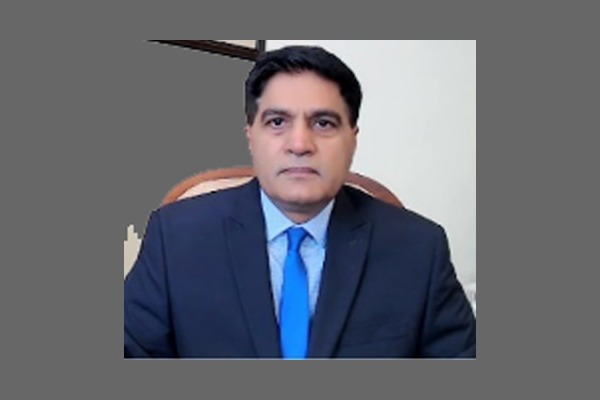

Governance and Quality Challenges for Universities
The higher education sector has expanded worldwide with unprecedented growth over the past few decades. Pakistan is no exception, where the number of universities has reached over 260. While this has allowed for enhancing enrollment, it has also posed challenges to ensuring quality, research, relevance, and skill sets required for employment aligned with national education policy and attaining KPIs for better governance and sustainability. The universities have made efforts for transition to implement new policies formulated by the HEC at undergraduate and graduate levels to develop new curricula and programs such as ADP, BS, Master and PhD degree programs, with the objectives of improving standard and international rankings. The presentation will highlight significant challenges and improvements in governance, classification and ranking and quality, automation, and skills and competencies of faculty in terms of the ecosystem essential for learning outcomes and graduate attributes, research, innovation startups, technology commercialization, and entrepreneurship.
Prof. Dr. Fazal A. Khalid joined as Rector of GIK Institute of Engineering Sciences and Technology in September 2021. Previously he served as Chairman Punjab Higher Education Commission PHEC (2019-2021) and Vice Chancellor of University of Engineering and Technology Lahore (2014-2018) and earlier as Pro-Rector, Dean and Professor at GIK.
Sub-Session 2: Building Faculty Capacities in Preparing Employable Graduates
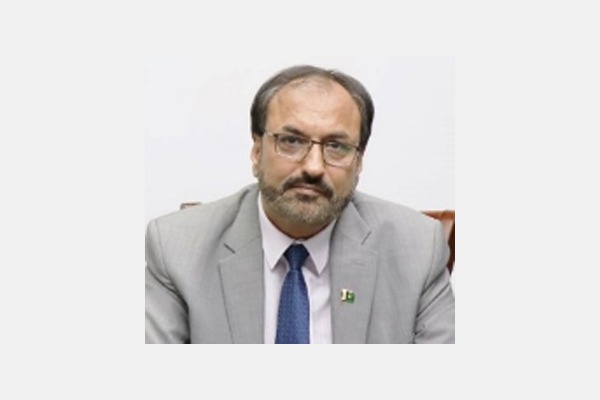

Prof. Dr. Shahid Munir assumed thecharge as Chairperson of Punjab Higher Education Commission (PHEC)in June 2022. He brings with him rich experience in the field of academia, industry, research, and administration. Prior to this,hewas leading the University of Jhang as Vice-Chancellor.Dr. Shahid Munir has earned his PhD in Energy and Environment Engineering from the University of the Leads, UK.
Speakers
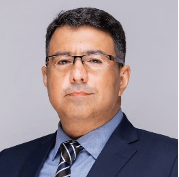

Measure, Don’t Count: How to Move from Quantitative Metrics of Academic Productivity to a Focus on Impact
Vibrant higher education sectors make wide-ranging contributions to their local communities and larger societies they operate in. Their primary purpose is teaching and training (i.e, to serve undergraduate and graduate students) and, if it fits into the institution’s mission, conduct research. To ensure action, performance measures of faculty, staff and institutions are aligned to reflect these priorities because the system will inevitably optimize for their maximization. A holistic higher education experience for students requires a matching dedication from university faculty and staff and that acknowledges their work efforts towards leadership, management, administration, citizenship, equality, diversity and inclusion. Most of all, to ensure that performance appraisals do not encourage resume padding, claimed contributions must be evaluated in terms of outputs produced, the impact they had, and not inputs, the effort that was put in.
Dr. Ilyas received the M.S. and Ph.D. in Electrical Engineering from Michigan State University (MSU), East Lansing, MI in 2007 and 2009, respectively, the M.S. in Computer Engineering from the Lahore University of Management Sciences (LUMS), Lahore in 2005 and the B.E. (Honors) in Electrical Engineering from the National University of Sciences and Technology (NUST), Islamabad in 1999. Prior to that he was serving as Associate Professor (Computer and Network Engineering) at the College of Computer Science and Engineering of the University of Jeddah, Jeddah, Saudi Arabia from 2016-2022. Prior to that he was appointed Assistant Professor (Electrical Engineering) at the School of Electrical Engineering and Computer Science of the National University of Sciences and Technology, Islamabad, Pakistan from 2011-2016. Before that he worked as a Post-doctoral Research Associate at the Department of Electrical and Computer Engineering at MSU from 2010 to 2011 under the joint supervision of Prof. Hayder Radha and Prof. Alex X. Liu and Research Assistant from 2004. He also held various technical positions at Quartics LLC, in Irvine-California, Engro Chemicals Pakistan and Avaz Networks, Islamabad.
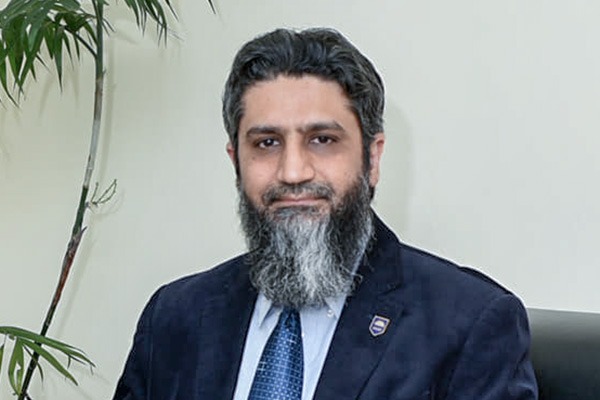

Faculty Hiring, Performance Evaluation and Retention – Challenges and Our Experiences at NUST
The progress of a university towards accomplishing its mission is highly dependent upon the individual and collective performance of its faculty members. Being a fourth-generation entrepreneurial university following the Penta Helix model, we at NUST are very cautious to provide an enabling environment to our exceptional academic colleagues that allows them to perform well in several diverse roles. We strongly believe on hiring talented and diverse faculty members and thus having a rigorous and fair hiring process is quite essential. Similarly, a performance evaluation system that is well aligned with the vision and mission of the organization is the key to success. This system should not only encourage the professional growth of faculty members but must also ensure the appropriate recognition of their excellence and thus their retention. In this talk, we would be discussing some of the main challenges that we face in hiring, evaluating the performance of and retaining our faculty members. The talk would also cover our efforts to cater for these challenges and some discussions on the effectiveness of those measures.
Osman has a Ph.D. degree from Concordia University, Montreal, Canada. He is currently the Pro-Rector (Academics) at NUST. Previously he has remained Principal & Dean SEECS and has also served as HoD Research and Senior HoD Electrical Engineering at SEECS. He received HEC’s “Best Teacher Award” in 2011 and the NUST “President’s Gold Medal for the Best Teacher” in 2015. Dr. Hasan has been granted research awards worth over Rs.125M from various national and international agencies. He has been awarded the HECs “Best Young Researcher Award” in 2012, and the NUST Best Researcher of the University award of 2015 and 2019 and the HEC’s Best Researcher award in 2020. His services towards higher education and research have also been acknowledged at the national level by the President of Pakistan as he has been the proud recipient of the prestigious Tamgha-i-Imtiaz (Medal of Distinction) in 2022.


Using intentional design to translate from in-person to high-quality online learning opportunities
If the pandemic taught us anything, it’s that a lift-and-shift approach to online learning does not lead to student engagement or success. Instead, higher education institutions like the University of Utah are encouraging an intentional approach to online teaching, making strong distinctions between the lecture-based, in-person teaching that has been persistent in higher education for centuries and the largely asynchronous, active, flexible, highly engaged learning opportunities that are increasingly hallmarks of high-quality online programs. With appropriate design, both modalities can be high-quality. This session will describe how the UofU’s University Connected Learning (UCL) unit is building out roles and services to be the campus’ internal OPM (Online Program Management unit). Use cases include: effective communication and faculty training about the U’s digital learning infrastructure; collaborations with the campus’ Center for Teaching Excellence to support faculty development; the establishment of in-house curricular and instructional design roles and process; supporting faculty in the cultural and mindset shift to create new learning opportunities across modality and credential types; and intentional facilitation of academic and workforce partners in curricular co-design to align university programs with workforce needs.
Deborah is a creative educator and thought leader with over two decades of experience in IT and higher education. As a senior administrator at the University of Utah, Keyek-Franssen works with a talented team to provide digital technologies for teaching and learning on-campus and off; a full range of online education opportunities and services to support those programs including learning experience design, market analysis, marketing, and adult learner support; and a rich set of professional education, workforce alignment, and personal enrichment programs. She began her career at the University of Colorado, where she served as director of academic technology; oversaw strategy and research in the use, implementation, and evaluation of educational technologies; and managed a team of consultants and technologists.
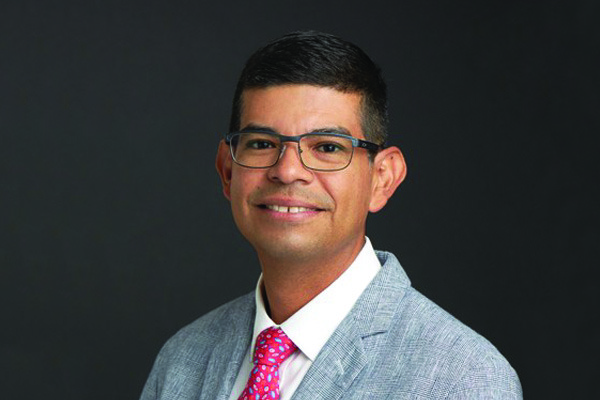

The Role of Academic Staff for Student Employability
The concept of employability has received increasing attention in recent years, but the concept has yet to be successfully unpacked for practitioners. This session will discuss different dimensions of employability, such as individual characteristics, discipline of study, and institution-based. This session will also introduce the model for Learner Success by the American Council on Education, with a focus on life planning and work preparation.
Dr. Gerardo Blanco is Associate Professor of Higher Education, and academic director of the Center for International Higher Education at Boston College. He is also a Fulbright Specialist, and advisor for programs and global initiatives at the American Council on Education. His research explores the intersections of quality and internationalization in higher education. An interdisciplinary scholar, his research has been published in top international journals in the fields of Higher Education and Comparative Education. He has received several awards from the Comparative & International Education Society's Higher Education SIG for his dissertation in 2014, and for research articles in 2017 and 2019. He has been a visiting professor at Shaanxi Normal University (China) and at the University of Kassel (Germany). He was an Erasmus+ fellow at the John Paul II Catholic University of Lublin (Poland). He earned his Ed.D. from the University of Massachusetts Amherst. Before joining Boston College, he was associate professor at the University of Connecticut, where he also served as faculty director of Global House, a living-learning community for international students.
Sub-Session 3: Bridging Career Readiness Gaps
Session Chair
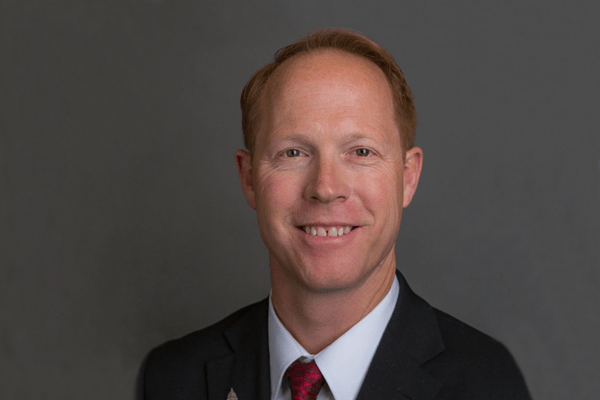

Dr. Grover has been an educationist for more than 30 years. He worked as a teacher and then as an administrator working with students of all ages from elementary school through the University level. The ability of education to break the cycle of poverty and to enrich lives drives his attention to legislative policy that will make education accessible to all. Dr. Grover was first elected to the Utah House of Representatives in 2006 where he served until 2018. Since then, he has been serving as a Senator in the Utah State Senate where his term will expire in 2027. Senator Grover’s current positions include: (1) Chair of Natural Resources Committee, (2) Chair of Higher Education Appropriations Committee, and (3) Member of Government Operations Committee. Dr. Grover holds a PhD degree in Education from the University of Utah.
Speakers


Building Win-Win Relationships to Benefit Students and Strengthen Institutions
Innovative universities are willing to look outside the walls of their ivory towers for ways to stay relevant in changing economic and employment environments. This includes building relationships with key stakeholders who can invest in our institutions and provide opportunities for practical student learning. There are successful models for building win-win programs between academia and the private sector, allowing higher education institutions to learn important information about what businesses need and then to provide a relevant education to their students. Institutions can also offer certifications which lead to good paying jobs, and which can lead students into traditional academic programs. Educators must be willing to ask “What can we do better? What are we NOT offering that is needed in today’s economy?” and then act on what is learned.
DMary has over 30 years of experience in higher education, has led teams in the U.S and internationally in Poland, Armenia, Dubai and Pakistan. As the current vice president of Advancement at University of Central Arkansas (UCA), she is leading the $100 million UCA NOW capital campaign where her team has exceeded annual fundraising goals for a 5th consecutive year. She and her husband Bill have four children and two grandchildren.


Bridging Career Readiness Gaps – How Higher Education Institutions Can Help
Asian Institute of Technology (AIT), Thailand has a very high inclusion of students and faculties from more than 45 countries making it a truly diverse and international institution. The campus provides multiple opportunities for the students to carry out their study/research by providing them with scholarships and fellowships in a core as well as interdisciplinary subjects; is equipped with state-of-the art technologies for the researcher to perform their work; provides an alternative to study in-person, online, or even hybrid mode; and inspires for a collaborative study with the industry and other institutions. It’s mission to be a financially viable, self-sustaining institution has been backed-up by the donors from various sectors and its own outreach centers inside the campus. This could be an exemplary institution that provides the quality education, prioritize the innovation and entrepreneurship, skill education and at the same time self-sustaining and market driven.
Naveed is a structural engineer, academician, researcher, software developer, with over 40 years of active professional engagement. Currently, he is the vice president for knowledge transfer at the Asian Institute of Technology (AIT). He received his B.Eng. from University of Engineering and Technology, Lahore, Pakistan; M.Eng. and D.Eng. from Asian Institute of Technology, Bangkok, Thailand. He has been engaged as specialist by ADB, World Bank, UNESCAP, UNESCO and has been part of the team at California based Computer and Structures Inc. His research interests include finite element modeling and applications, advanced concrete design, performance-based design of tall buildings, design and evaluation of bridges, innovations in building technology, IOT, machine learning etc.
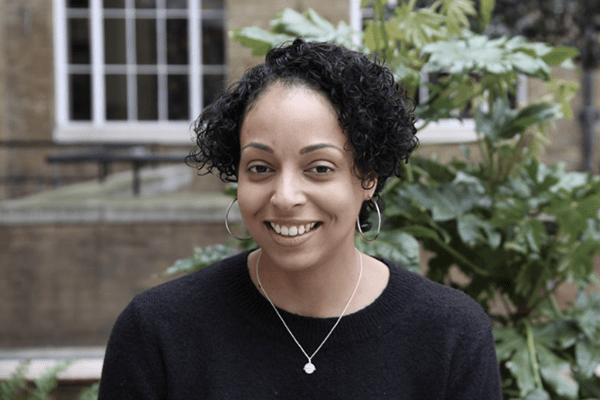

The Importance of Embedding Employability
A key driver in the success of graduates finding employment opportunities is equipping them with employability skills. Universities cannot rely on Careers Services to deliver this in isolation as we know not all students are able or willing to engage in extracurricular activities. Embedding employability into the curriculum is often more effective, accessible, and relevant, providing students with the contextualized employability skills that will enable them not only to find a job, but find one related to their field of study. We will explore what this looks like in practice, the benefits and the potential barriers and how to overcome them.
Natalie has worked for notable institutions including UCL, University of the Arts London and London Business School and now works in the UAE at the University of Birmingham Dubai. A passionate advocate for making education, employment and social mobility accessible for all, she has been working in Higher Education for over a decade, leading teams and services that are diverse, inclusive and representative.
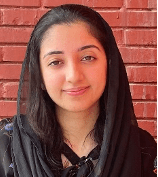

4 Years: Recreating in Retrospect
Through her own lens as well as the lenses of her peers, Duaa will evaluate her higher education student experience, while offering corresponding recommendations on bridging the gap between the student and success and the many roles the university plays within this context, specifically in the realms of academics, student organization, career support, and inclusivity.
Duaa is a senior at National University of Sciences and Technology (NUST), majoring in Economics, and currently Press Secretary at the Community Service Club. Outside of her institution, she has worked in organizations including Amnesty International, the United Nations, the Pakistan Ministry of Human Rights, the Talloires Network Next Generation Leaders Program, and Gallup.
Session 4
Improving Quality of Higher Education and Role of Accreditation
-
This session is designed for a dialogue on challenges and opportunities in implementation of quality assurance mechanisms to improve the market value of degrees. For example, not only how practices followed in Pakistan differ across universities within the country, but from those considered to be international best practices. Topics will include how do we define quality improvements? How do universities/colleges/ programs prepare themselves for accreditation? What should be the role of Federal HEC or equivalent provincial bodies in enhancing quality standards and in the accreditation process? What are global experiences or best practices in accreditation and quality assurance? What are the quality and accreditation-related challenges with reference to coordination between universities, HEC, and regulatory bodies?
Session Chair
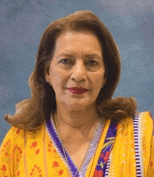

This session is designed for a dialogue on challenges and opportunities in implementation of quality assurance mechanisms to improve the market value of degrees. For example, not only how practices followed in Pakistan differ across universities within the country, but from those considered to be international best practices. Topics will include how do we define quality improvements? How do universities/colleges/ programs prepare themselves for accreditation? What should be the role of Federal HEC or equivalent provincial bodies in enhancing quality standards and in the accreditation process? What are global experiences or best practices in accreditation and quality assurance? What are the quality and accreditationrelated challenges with reference to coordination between universities, HEC, and regulatory bodies?
Speakers


The Role of Accreditation in Higher Education Quality: A Global Research Perspective
Accreditation is the most globally diffused and established higher education quality practice, and yet, it is often discussed from the perspective of compliance, sacrificing its potential for quality improvement. This presentation will focus on the potential of accreditation for improvement and will discuss the quality work framework with a focus on different regional contexts.
Dr. Gerardo Blanco is Associate Professor of Higher Education, and academic director of the Center for International Higher Education at Boston College. He is also a Fulbright Specialist, and advisor for programs and global initiatives at the American Council on Education. His research explores the intersections of quality and internationalization in higher education. An interdisciplinary scholar, his research has been published in top international journals in the fields of Higher Education and Comparative Education. He has received several awards from the Comparative & International Education Society's Higher Education SIG for his dissertation in 2014, and for research articles in 2017 and 2019. He has been a visiting professor at Shaanxi Normal University (China) and at the University of Kassel (Germany). He was an Erasmus+ fellow at the John Paul II Catholic University of Lublin (Poland). He earned his Ed.D. from the University of Massachusetts Amherst. Before joining Boston College, he was associate professor at the University of Connecticut, where he also served as faculty director of Global House, a living-learning community for international students.
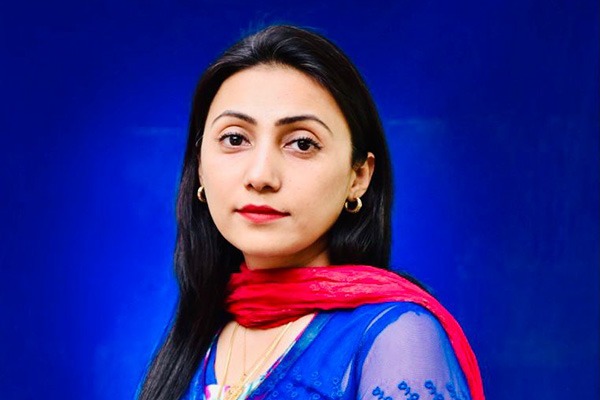

Linking Accreditation System to Improving the Higher Education Quality in Pakistan
Higher education in Pakistan is probably taken a bit more seriously by policy makers than primary, secondary or even higher secondary education. There are several regulatory bodies in Pakistan like HEC, provincial HECs (wherever functioning), PMC, PEC, PCATP, NCEAC and the list goes on. Out of them few are mandatory to practice certain professions and get HEC seal on the degrees to pursue further education especially outside Pakistan. Every HEI, offering certain professional degrees, receives multiple inspection visits, gets through them successfully and the cycle continues. Such inspections are mostly focused on numeration of HR, infrastructure and other facilities, dedicated resources for each program thus pushing for under-underutilization and / or duplication of available resources after every kilometer across the Campus. Quantitative part is usually missed out in this number game and unfortunately, it’s all done in the name of maintaining “quality” and “minimum standards”. Linking accreditation systems with quality or to help HEI in improving quality requires rationality in the quality matrix. The best way forward is to apply a data driven approach for revising or developing the wish list of regulatory bodies. The talk shall encompass types of Accreditation bodies and inspection visits, irrationality of few parameters of quality matrix or minimum requirements to run programs and possible solutions to eradicate redundancy and integrate the performance evaluation process consequently converging or linking it with qualitative assessment that enables HEI to revisit their policies in the light of qualitative SWOT analysis done by inspection team(s), focusing on specific underperforming sections and identifying the blind spots thus helping them to improve their quality and performance.
Professor Samreen Hussain is currently working as Vice Chancellor (Acting) of Aror University of Art, Architecture, Design & Heritage. She is also member of Sindh Higher Education Commission, Chartered Inspection and Evaluation Committee. As a professional engineer she is also an Elected Member of the Board of Governors of Pakistan Engineering Council. Youngest and first female engineer as Deputy Convener Engineering Accreditation Board, Convener Innovation & Entrepreneurship Committee & member PEC think tank.
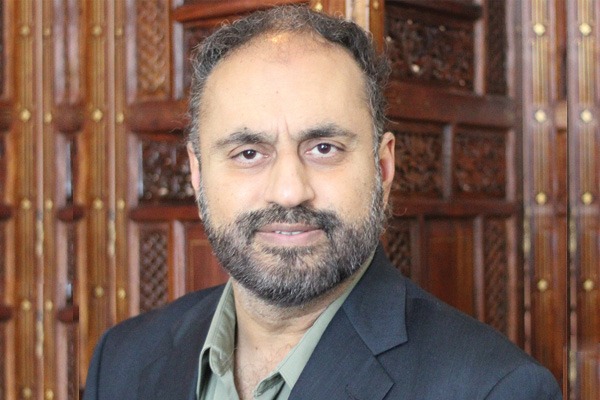

Quality Assurance and the Role of Accreditation: Learning from the US model
This talk will present an overview of the accreditation system in the USA. The strengths and limitations of the accreditation system will be discussed. Speaker will share his experience both as an evaluator for multiple accreditation agencies and as the chair of a department with two accredited programs. The talk will offer suggestions on how universities and programs can prepare themselves for continuous improvement and accreditation. Some of the best practices in the area will be shared.
Sajjad is a professor of water resources and a senior water management expert with a broad background. He has over 20 years of experience in hydrologic and hydraulic modeling, integrated water resources management, climate change impacts, water-energy nexus, urban water use efficiency, water policy, teaching, and training. As an educator, Dr. Ahmad has supervised 32 graduate students to successfully complete their MSE or Ph.D. degrees. Dr. Ahmad has published 118 papers in peer-reviewed journals and more than 100 book chapters or papers in conference proceedings on a variety of research topics related to hydrology and water resources planning and management. His publications have been cited more than 9300 times (h-index 58; i-10 index 127. source Google Scholar)
He is a Fellow of the American Society of Civil Engineers (ASCE), and the recipient of the NSF CAREER Award. He serves on the Editorial Board of eight international Journals, including ASCE Water Resources Planning and Management. Dr. Ahmad holds a Ph.D. in Civil Engineering (Water Resources) from the University of Western Ontario, Canada, and an M.Sc. in Water Resources from the Asian Institute of Technology, Thailand. He received his BSc in Civil Engineering from the University of Engineering and Technology, Lahore Pakistan.
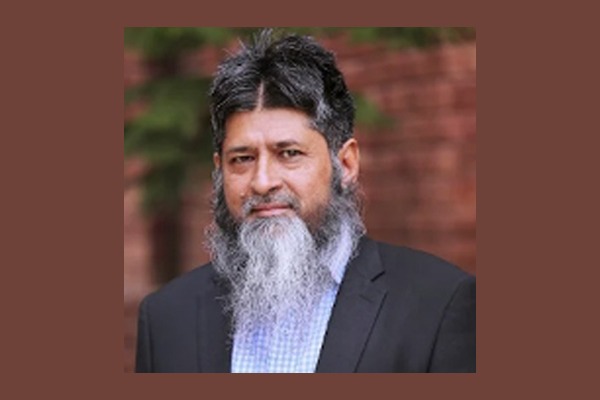

Khalid has rich experience of teaching, administration and research. Started professional career as secondary school science teacher with qualifications of B. Sc. and B. Ed in January 1981. Continued journey of professional development by earning degrees of Master of Education, Master of Arts in Urdu, Master of Arts in Education Planning and Management. Finally earned Ph. D. in Education degrees with curriculum as area of specialization from University of the Punjab, Lahore. Worked at Punjab Education Assessment System (PEAS) as Assessment Expert and acquired educational assessment skills and experience. Joined University of Education as Assistant Professor and had an experience of teaching at post graduate level along with the administrative responsibilities as Director Division of Education, University of Education. Worked as Coordinator Center for Educational Research and Assessment (CERA) at University of Education. Lead research team at University of Education engaged in USAID funded research projects. Got an opportunity of working in development sector and worked as Director Bridging Programs in USAID Teacher Education Project. Currently working as Secretary NACTE since March 2020.
Session 5
Higher Education and Climate Change Adaptation
-
Higher Education Institutions can contribute to the climate change adaptation and resilience agenda. This issue has been subject to regular debate over the last decade, but calamities caused by the recent floods in Pakistan made it even more urgent to look at the state of adaptation efforts and how these could be further improved. As such, this session will create an opportunity for all stakeholders to discuss how HEIs, climate policy think-tanks, policy and advocacy groups, and other stakeholders can come together to build an understanding of the way forward. What are critical knowledge gaps we should be worried about and what direction higher education should take to address those? What best practices or adaptation models provide hope for optimism especially for developing countries like Pakistan? How can higher education help us think our way out of problems as well as prepare workforce of tomorrow that is skilled at sustainable solutions.
Session Chair
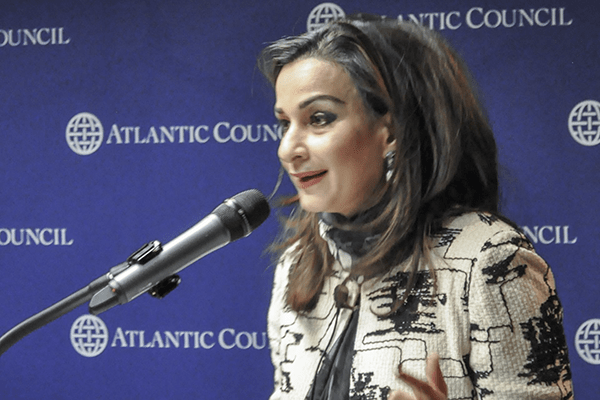

Higher Education Institutions can contribute to the climate change adaptation and resilience agenda. This issue has been subject to regular debate over the last decade, but calamities caused by the recent floods in Pakistan made it even more urgent to look at the state of adaptation efforts and how these could be further improved. As such, this session will create an opportunity for all stakeholders to discuss how HEIs, climate policy think-tanks, policy and advocacy groups, and other stakeholders can come together to build an understanding of the way forward. What are critical knowledge gaps we should be worried about and what direction higher education should take to address those? What best practices or adaptation models provide hope for optimism especially for developing countries like Pakistan? How can higher education help us think our way out of problems as well as prepare workforce of tomorrow that is skilled at sustainable solutions.
Session Co-Chair
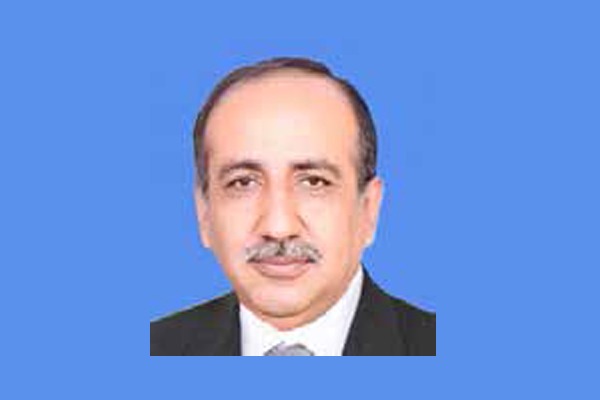

Speakers


Re-Envisioning Multi-Level Governance of Higher Education for a Climate Resilient Pakistan
Building adaptation and resilience against complex challenges such as global climate change, diseases vectors, air pollution, water pollution and poverty require HEIs to move beyond disciplinary siloes. The organizational and functional structures of HEI colleges and departments need to be revamped to enable interdisciplinary and transdisciplinary training of college bound workforce. Academia must move beyond their disciplinary bubbles and incentivize mission-driven science, in addition to the traditional curiosity-driven science. Success metrics of HEIs must be re-envisioned to incentive engagement of faculty and students with vulnerable populations exposed to systemic risk vectors ranging from climate change to poverty. Relevant federal and provincial agencies implementing policies across climate change, water, food, energy and poverty reduction must coordinate their actions and promote team science in HEIs through project-based learning and action research. The inter-agency consortia can iteratively prioritize investments in grand challenges and fund team science initiatives that identify feasible multi-level governance as well as scientific & technological solutions to complex problems induced by vulnerability to climate change induced systemic risks.
Asim Zia is a Professor and Director of Ph.D. program in Sustainable Development Policy, Economics and Governance (SDPEG) at the University of Vermont (UVM). He is also Director of UVM’s Institute for Environmental Diplomacy and Security (IEDS); and currently appointed as a Fulbright Global Scholar (2021-2023) to lead a project on “Securing Clean Water in Transboundary Indus, Jordan and Amazon Basins through Science and Environmental Diplomacy.” His research, teaching and outreach activities focus on advancing the sustainability and resilience of integrated socio-environmental systems. He has led NSF, USDA, NOAA and McArthur foundation funded Team Science projects aimed at developing computational models of Social Ecological Systems. Foresight generated from these computational models is used widely to design anticipatory policies, configure governance systems and implement adaptive management.


A Better Future by Students Addressing Grand Challenges
The Chapman University Grand Challenge Initiative is a comprehensive education program that inspires first- and second-year college students to address the most pressing problems in the world from climate change, data security, food insecurity to health availability. This “learn by doing” approach improves skills such as critical thinking, teamwork and communication while allowing them to address one of the most important issues facing society – climate change. Over a two (2) year period, freshman and sophomore science and engineering students propose and implement ideas to address climate change. Novel ideas have come from this program including the development of new biochemical plastics that are biodegradable, technologies that improve the response to natural disasters and development of earthly friendly soap products. This presentation will share this best practice and outcomes that prepare students for the workforce of tomorrow and addressing climate change.
Thomas is a Professor of Engineering and Environmental Science and Policy at Chapman University. He received his Ph.D. in Civil and Environmental Engineering in 1997 from UCLA. Dr. Piechota has been recognized for his efforts in teaching, research and as an administrator where he has helped advance the research enterprise through increases in research funding, outside partnerships and entrepreneurial activities. In 2003, Dr. Piechota received a National Science Foundation CAREER Award for the project, "Improved Hydrologic Drought Forecasting Using Climate Information." From 2008-2013, Dr. Piechota was the Co-PI on a $20 million National Science Foundation funded studies on climate change impacts in Nevada. In 2009, his participation in the development of guidelines for the Colorado River were recognized by the Secretary of the Interior’s Annual Partners in Conservation Award. At Chapman, Dr. Piechota was the inaugural Vice President for Research and helped expand the research from 2016 - 2021 with notable recognition including Carnegie R2 (High Research Activity) designation in December 2018 and a tripling of research expenditures from 2016 to 2021.
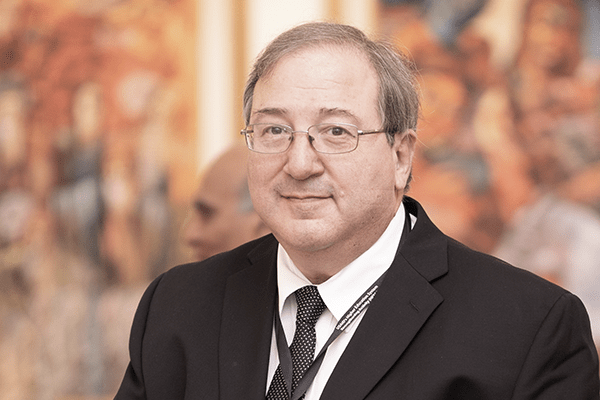

Adaptation to Climate Change: Integrating Teaching and Research across HEIs
As societies around the world grapple with UN Sustainable Development Goal 13 (action to combat climate change), the importance of integrated approaches across higher education institution curriculums intensifies. Comprehensive national and international solution strategies will need to incorporate aspects of agricultural, economic, engineering, legal, policy, political, science, societal, and other perspectives requiring an educated populous to support or challenge proposed approaches based on truth rather than rhetoric. The importance of promoting dialog among traditional disparate segments of the student body is critical for formulating the next generation of problem solvers and shaping research agendas that lead to implementable fair and resilient solutions rather than “ivory tower” answers that are not practical because they fail to incorporate one or more essential components. This presentation examines how, since 2010, the University of Utah has developed and evolved its approach to climate change by: 1) developing a university climate change action plan, 2) supporting a university wide Global Change & Sustainability Center (GCSC), 3) developing an undergraduate climate change certificate, and 4) encouraging interdisciplinary research into broad climate change topics recently culminating in a philanthropic gift creating the Wilkes Center for Climate Science and Policy. By briefly examining each of these components, this approach is presented as a model framework for Pakistan’s HEIs. This pathway can be easily modified to incorporate conditions unique to Pakistan.
Michael Barber is Professor and Chair of Civil and Environmental Engineering (CvEEN) at the University of Utah in Salt Lake City, Utah. Michael has three degrees in Civil Engineering beginning with his BS from the University of New Hampshire, MS from Purdue University, and PhD from the University of Texas-Austin. He has over 30 years of experience in hydrology and water resources working in academics and in private consulting. His responsibilities include administering the CvEEN Department, teaching undergraduate and graduate classes, developing externally funded research proposals and budgets, advising and supervising undergraduate and graduate students, mentoring and publishing technical papers. He has taught courses in water resources, surface water hydrology, sediment transport, open channel flow, surface water contaminant transport, hydraulic design, and ecological modeling. Dr. Barber’s research has field investigations and numerical modeling studies of water, nutrients, and primary productivity in rivers and lakes with focus on stream-groundwater interaction, climate change implications, and human adaptation. He is currently working on investigation of climate change impacts on water quantity and quality, understanding the impacts of bioenergy on water demand, and groundwater modeling of aquifer storage and recovery for increasing water availability. Michael is very involved in multi-stakeholder projects where consensus building and information transfer are vital components of the research.
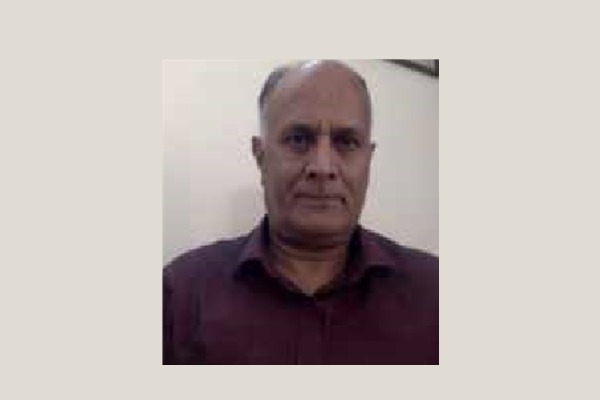

Challenges for Climate Change Adaptation in different Socioeconomic Sectors in Pakistan
Pakistan is one of the most affected countries due to the adverse impacts of climate change on all the socioeconomic sectors not allowing the sustainable development. The gravity of the situation is turning to be more and more serious as global warming is accelerating but Pakistan is struggling without any comprehensive adaptation plan. There are multiple reasons, among them, the most suppressive are political instability, poor implementation of policies, lack of institutional capacity, limited access to financial resources and no transfer of technology from developed countries. This is the country, which is in possession with climate change policy, water policy, agriculture policy, forest policy, disaster management policy and so on so forth which identify the problems nicely and present the solutions and adaptation strategies. Unfortunately, they are shelved waiting for their implementation. There is a strong interdependency among the sectors such as water and agriculture, but they lack in coordination to conduct collaborative research studies for climate change adaptation and deploy a coordinated implementation plan. Academia and industry linkage is weak which may communicate the researchable appetite of the consumers to promote the indigenous solutions. Despite the commitments of the global community in Paris Climate Accord for reduction of emissions to keep the average rise in Earth’s temperature well below 2 degrees C compared to the pre-industrial era, the CO2 atmospheric concentrations are increasing at the same rate showing the lack of seriousness of the major emitters. At present, the increase in average temperature is 1.2C and impacts of climate change in terms of loss and damage have increased manifolds compared to 20th century. Monsoon 2022 in Pakistan was highly anomalous producing historic rain inundation in the arid zone, highest number of glacial outbursts, flash floods, landslides, and urban flooding. Keeping in mind that no one will come to save us, and situation is going worse to the worst, we should expedite our efforts with available resources and help from the partners to implement the pathways of the climate resilient adaptation strategy. Preference should be given to the gender inclusive nature-based solutions and the replication of the best practices around the world with local modifications. All the socioeconomic sectors should devise their adaptation strategy through inter-sectoral consultation backed by reliable climate services for their operational plans in changing climate to reduce the risks.
Ghulam Rasul is presently Head of Climate Change Program of International Union for Conservation of Nature (IUCN) in Pakistan. He has led MENRIS Program at International Center for Integrated Mountain Development (ICIMOD) for three years with initiatives on SERVIR HKH, Regional Database System and Climate Services in 8 regional member countries. Along with UK Met Office launched Asia Regional Resilience to Changing Climate (ARRCC) project activities in 4 South Asian Countries from the coast to the HKH mountains. Dr Rasul is a climatologist with professional career over 3-dacades served in diverse range of weather and climate disciplines and retired as Director General Pakistan Meteorological Department. He spearheaded PMD team in GLOF-I project of the Global Adaptation Fund updated glaciers and glacial lakes inventory of Pakistan and established EWSs in 3 pilot valleys of GB and Chitral. Based on this success story GLOF-II received funding from GCF and execution is in progress. He is recipient of International Young Scientist Research Award in 1992 and Senior Scientist Research Award 2007 in climate modeling. He has served the Asia-Pacific Region from WMO platform as Regional Coordinator of Climate Services for Agriculture and DRR. Working with GEOSS as co-chair of Asian Water Cycle Initiative developed DIAS on Drought, Flood and Climate Change initiatives for 19 Asian River Basins of RMCs. Dr. Rasul lead artificial rain experiments to eliminate drought, established Early Warning Systems for floods, heat waves, tropical cyclones, drought and GLOF. He is member of various global and regional DRR fora and author of more than 100 research papers published in journals of national and international repute.
CONFERENCE CONTACT
HESSA Project, Islamabad, Pakistan
M. Aslam Chaudhry, Chief of Party
Ayesha Razzaque, Deputy Chief of Party
HESSA Project, University of Utah, SLC, USA
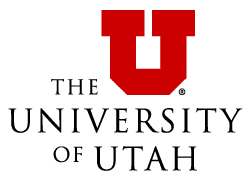
![]()
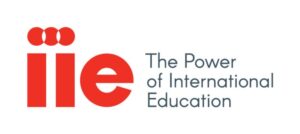
This program is made possible by the support of the United States Government and the American people through the United States Agency for International Development (USAID). The contents are the sole responsibility of the University of Utah and do not necessarily reflect the views of USAID or the U.S. Government.

